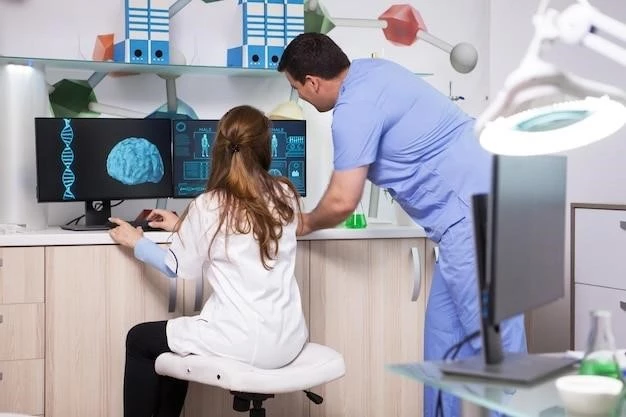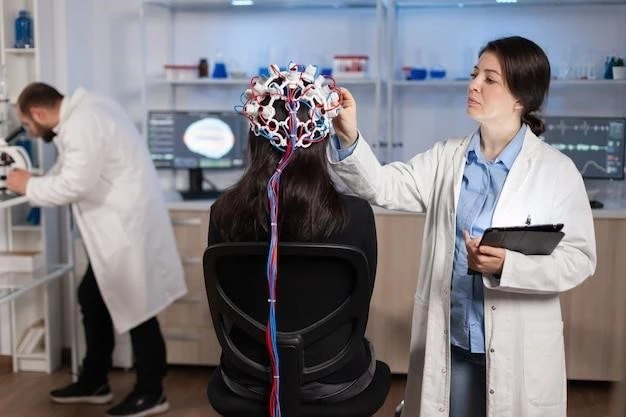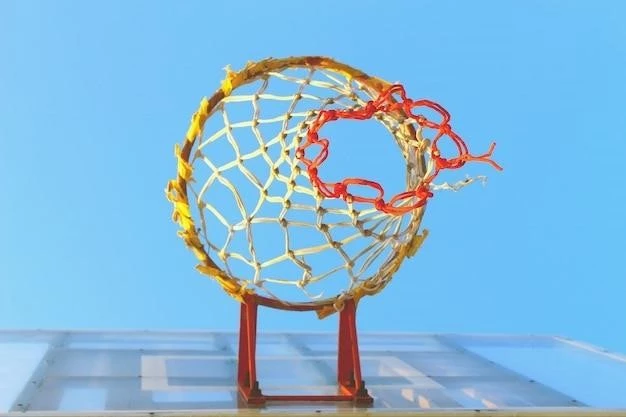Introduction to Pontocerebellar Hypoplasia
Pontocerebellar Hypoplasia (PCH) is a rare group of neurodegenerative disorders characterized by underdevelopment of the pons and cerebellum. The conditions have prenatal onset with varied motor and cognitive impairments.
Description and Overview
Pontocerebellar Hypoplasia (PCH) is a rare group of neurodegenerative disorders characterized by underdevelopment of the pons and cerebellum. The conditions have prenatal onset with varied motor and cognitive impairments. PCH presents a spectrum of symptoms and is classified into several types based on distinctive clinical features and genetic mutations. Research continues to explore the genetic causes and subtypes of this complex condition.
Clinical Features of Pontocerebellar Hypoplasia
Pontocerebellar Hypoplasia (PCH) presents a range of symptoms including motor dysfunction‚ cognitive impairments‚ and developmental delays. The condition is characterized by underdevelopment of the pons and cerebellum‚ leading to various neurological manifestations.
Symptoms and Presentation
Pontocerebellar Hypoplasia (PCH) manifests with a spectrum of symptoms including motor dysfunction‚ cognitive impairments‚ developmental delays‚ and varying degrees of cerebellar and pons underdevelopment. Patients may present with neurological manifestations affecting movement coordination‚ intellectual abilities‚ and overall neurodevelopment. The disorder’s onset is typically prenatal‚ with symptoms becoming apparent early in life. The clinical presentation can vary widely depending on the specific subtype and severity of the condition.
Genetic Causes of Pontocerebellar Hypoplasia
Pontocerebellar Hypoplasia (PCH) is a rare group of disorders primarily with a prenatal onset. Severe underdevelopment or atrophy of the cerebellum and pons‚ along with genetic mutations‚ contribute to this condition’s complexity and variability.
Identified Genes and Mutations
Pontocerebellar Hypoplasia (PCH) is attributed to mutations in various genes‚ resulting in a complex genetic landscape for this condition. As of date‚ research has identified mutations in multiple genes associated with different subtypes of PCH‚ highlighting the genetic heterogeneity that underlies this rare group of neurodegenerative disorders.
Classification of Pontocerebellar Hypoplasia
Pontocerebellar Hypoplasia (PCH) encompasses a diverse group of rare disorders characterized by underdevelopment of the pons and cerebellum. With 13 types identified‚ the classification is based on distinct clinical features and genetic mutations‚ contributing to the complexity and variability of the condition.
Types and Subtypes
Pontocerebellar Hypoplasia (PCH) is a rare group of disorders with various types and subtypes that manifest as underdevelopment of the pons and cerebellum. As of the latest information‚ there are 13 identified types of PCH associated with mutations in 19 different genes‚ showcasing the genetic complexity and heterogeneity of the condition.
Diagnosis and Imaging in Pontocerebellar Hypoplasia
Diagnosing Pontocerebellar Hypoplasia (PCH) involves clinical evaluation‚ imaging studies like MRI‚ and genetic testing to identify mutations in associated genes. These diagnostic tools play a crucial role in confirming the condition and subtype‚ aiding in personalized treatment strategies;
Role of MRI and CT Scans
Medical imaging techniques such as magnetic resonance imaging (MRI) and computed tomography (CT) scans play a pivotal role in diagnosing Pontocerebellar Hypoplasia (PCH). These imaging modalities provide detailed insights into the structural abnormalities of the pons and cerebellum‚ aiding in the accurate assessment of brain development and contributing to the identification of characteristic features associated with PCH subtypes. Additionally‚ MRI and CT scans assist healthcare professionals in monitoring disease progression and guiding personalized treatment approaches for individuals affected by PCH.
Treatment Options for Pontocerebellar Hypoplasia
Management of Pontocerebellar Hypoplasia (PCH) involves supportive care tailored to address specific symptoms such as motor dysfunction and cognitive impairments. Therapies aim to enhance quality of life and functional abilities‚ although treatment options are often limited due to the complex nature of the condition.
Management and Therapies
Management of Pontocerebellar Hypoplasia (PCH) involves a multidisciplinary approach focusing on supportive care to address various symptoms. Therapeutic interventions aim to improve the patient’s quality of life by managing motor dysfunction‚ cognitive impairments‚ and developmental delays associated with the condition. While treatment options are limited due to the complex nature of PCH‚ personalized care plans tailored to individual needs play a crucial role in optimizing outcomes for affected individuals.
Prognosis and Complications of Pontocerebellar Hypoplasia
The prognosis of Pontocerebellar Hypoplasia (PCH) varies depending on the specific subtype and the severity of symptoms. Individuals with PCH may experience complications related to motor dysfunction‚ cognitive impairments‚ and developmental delays. The outlook can be challenging due to the progressive nature of the condition and the limited treatment options available.
Outlook and Associated Risks
The prognosis for individuals with Pontocerebellar Hypoplasia (PCH) can vary depending on the specific subtype and the severity of symptoms. Patients with PCH are at risk of complications related to motor dysfunction‚ cognitive impairments‚ and developmental delays‚ which can impact their overall quality of life. Due to the progressive nature of the condition and limited treatment options‚ individuals affected by PCH may face challenges in managing their symptoms and achieving optimal outcomes.

Research and Recent Advances in Pontocerebellar Hypoplasia
Research on Pontocerebellar Hypoplasia (PCH) continues to advance our understanding of this rare group of neurodegenerative disorders‚ focusing on genetic mutations‚ disease progression‚ and potential therapies. Recent studies highlight the complexity of PCH‚ underscoring the need for ongoing research to improve diagnosis‚ treatment‚ and outcomes for affected individuals.
Current Studies and Breakthroughs
Recent research on Pontocerebellar Hypoplasia (PCH) has focused on genetic mutations‚ disease progression‚ and potential therapies. Breakthroughs highlight advancements in understanding the complexity of the condition and aiding in the development of novel diagnostic and treatment approaches. Ongoing studies aim to improve outcomes and quality of life for individuals affected by PCH.

Prevention Strategies for Pontocerebellar Hypoplasia
Due to the genetic nature of Pontocerebellar Hypoplasia (PCH)‚ prevention primarily involves genetic counseling and family planning. Early identification of genetic mutations through testing can enable families to make informed decisions regarding reproduction and potential risks of passing on the condition to offspring. While there are currently no known preventive measures for PCH‚ genetic counseling plays a vital role in guiding families on risk assessment and family planning options.
Genetic Counseling and Family Planning
Genetic counseling for Pontocerebellar Hypoplasia (PCH) involves advising families on the risks associated with inherited genetic mutations and providing information on family planning options. By understanding the genetic basis of PCH and the implications for future generations‚ individuals can make informed decisions regarding reproduction and potential risks of passing on the condition. Genetic counseling plays a critical role in supporting families affected by PCH and facilitating informed choices regarding family planning.
Impact of Pontocerebellar Hypoplasia on Patients and Families
Living with Pontocerebellar Hypoplasia (PCH) can have profound impacts on both patients and their families‚ as the condition presents challenges related to motor dysfunction‚ cognitive impairments‚ and developmental delays. Families may experience emotional‚ financial‚ and caregiving burdens due to the complex nature of PCH and its effects on the affected individuals. Providing psychosocial support and resources are essential in enhancing the quality of life for both patients and families navigating the complexities of PCH.
Psychosocial Support and Quality of Life
Pontocerebellar Hypoplasia (PCH) can significantly impact the well-being of both patients and their families. The emotional‚ financial‚ and caregiving challenges associated with managing the condition can affect the quality of life for affected individuals. Providing comprehensive psychosocial support and resources is vital in addressing the multifaceted needs of patients with PCH and their families‚ enhancing their overall quality of life and well-being.
Understanding and Addressing Pontocerebellar Hypoplasia
Effective management of Pontocerebellar Hypoplasia (PCH) requires a comprehensive approach that encompasses genetic counseling‚ early diagnosis‚ personalized treatment plans‚ and psychosocial support for patients and families. Ongoing research efforts continue to unravel the complexities of this rare neurodegenerative disorder‚ paving the way for improved understanding‚ diagnosis‚ and potential therapeutic interventions. By addressing the diverse needs of individuals affected by PCH and their families‚ healthcare professionals can strive to enhance overall outcomes and quality of life for those navigating this challenging condition.
